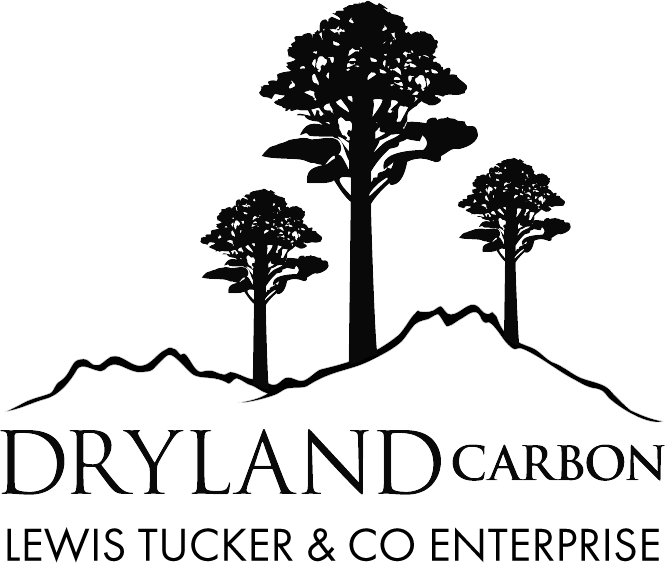QUESTIONS + ANSWERS
Q & A
+ Is Drylandcarboninterested in buying land for plantation forestry?
Yes. Drylandcarbon is developing a portfolio of forests including directly owned land and land established in forestry under lease or joint venture agreements with individual landowners.
+ Will the forests be permanent forests or harvested?
Drylandcarbon’s has a preference for rotation forests operated for both carbon farming and tree harvest income. Drylandcarbon will, however, entertain permanent forestry options where it is suitable.
+ What’s in it for farmers or other landowners?
A forestry partnership with Drylandcarbon offers a ‘turnkey’ solution for landowners. Through the partnership, marginal, uneconomic land is planted for carbon farming with Drylandcarbon providing the funding, forestry and ETS expertise and management.
Farmers can get on with farming their productive, economic land and improving overall farm productivity.
+ Won’t mass forestry conversion simply shut down rural communities?
Not under the Drylandcarbon approach. Negative impacts on rural communities are unacceptable to Drylandcarbon and its investors. Drylandcarbon wants to work in partnership with farmers and landowners to convert only marginal land to carbon forestry while enabling productive land to be more actively farmed. This is to the benefit of rural communities, jobs and farmer incomes.
+ So, you won’t mass-plant productive pastoral land?
No. Our plan is to plant steeper, economically marginal, often erosion-prone land where forestry for carbon farming is a more appropriate use of the land, leaving better, more productive land within conventional pastoral farming operations.
There is no shortage in New Zealand of economically marginal hill country which is perfectly suited for carbon farming – that’s our focus.
+ Why plant exotics?
Drylandcarbon’s aim is to absorb as much carbon as possible while maximising the volume of carbon credits for its land partners and investors. Exotics can absorb much greater volumes of carbon than natives over a 35-year partnership period. Planting exotics is also much less labour intensive and much less expensive than planting natives. We need to be clear that New Zealand won’t be able to meet its domestic or international climate change commitments without exotic forestry.
+ Why don’t I just do this myself?
You can, but it’s easier with us. Farmers establishing forests for carbon farming and tree harvest on their own behalf can do so if they’re in a position to commit the capital, establish forestry and manage ETS operations themselves.
+ What does Drylandcarbon bring to the table?
Drylandcarbon has specialist expertise in carbon farming from forestry in the ETS and employs industry-leading forest advisors and managers to oversee its forestry establishment and management operations. One of the key advantages of a partnership with Drylandcarbon is that the forest operation and ETS risks are managed for the landowner by Drylandcarbon, without the landowner needing to develop specialist skills or commit the time or capital to manage these aspects of the enterprise.
+ What are the environmental benefits?
A partnership with Drylandcarbon is focused on marginal, uneconomic land. Slippage and erosion from steep hill country are having a significant effect on waterways in many regions, ultimately impacting our rivers and the coastal marine environment.
Planting and stabilising steep, erosion-prone country can significantly reduce sedimentation and run-off. Further, Drylandcarbon will only plant trees where the land is suitable for planting and will ensure preservation of generous riparian margins to protect streams, rivers, wetlands and the birds, fish and animals that live within and around them.
+ What about health and safety?
Our Investors include an airline, two electricity generator/retailers and a fuel importer and distributor. Best-practice health and safety management is critical to Drylandcarbon and its investors, without exception.
Much of the land we target for forestry is increasingly difficult and, in many cases, dangerous to farm.
All activity conducted on a property by Drylandcarbon and / or its contractors will meet the highest health and safety standards and will of course meet individual farm safety plans and requirements.
+ Can I make money out of this?
The current commercial prospects for carbon farming from forestry are promising.
Drylandcarbon believes that a significant portion of the marginal farmland around the country is not making a positive contribution to overall farm incomes – despite being more challenging and time and resource-intensive to farm. Current conditions suggest that considerably higher, more stable returns are able to be generated through forestry for carbon credits and tree harvest.
+ What do banks and rural lenders think about this?
If your farm has areas of steep, marginal land, investigating carbon forestry is sensible. Where the land is suitable, carbon farming enables continued land ownership, diversifies income streams, provides inter-generational certainty and has the potential to improve overall farm economics.
+ What are the risks?
Establishing and operating forestry for carbon farming carries risks associated with the stability of the carbon market and the level and volatility of carbon prices over time. Both the ETS and the treatment of forestry in the ETS is subject to Government policy and legislation, and potential changes to these carry both positive and negative risk to an investment in carbon farming from forestry.
However, there is now clear poliltical consensus around the commitment to reduce carbon emissions.
+ How could this work for Iwi (Māori)?
Drylandcarbon's long-term carbon farming partnership model is a very good fit for Iwi landowners seeking to enhance returns from marginal land without having to invest capital or dedicate time and resources to forestry or ETS administration and managment. The partnership model enables continued Iwi land ownership, has the potential to deliver higher revenue for either distribution or reinvestment, and transition marginal, often difficult land, to a more environmentally friendly use.
Drylandcarbon is interested in exploring potential carbon farming partnerships with Māori organisations.

